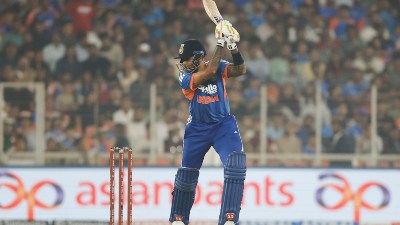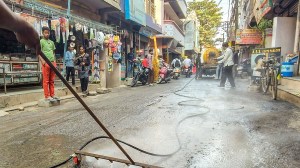Being accused of caste discrimination can land one in a lot more trouble than earlier, with the amended Prevention of SC/ST Atrocities Act presuming the motive behind every alleged crime committed against Dalits and tribals. The onus is now on the accused to prove the contrary.
The new legislation, passed by Parliament in the winter session, came into effect Tuesday against the backdrop of widespread student agitation spurred by the suicide of a Dalit research scholar at Hyderabad Central University.

Under the amendment, the court will presume the accused was aware of the caste or tribal identity of the complainant if he/she was acquainted with the victim or victim’s family, unless the contrary is proved. Previously, the burden of proof was on the complainant.
The law also defines 17 new atrocities that can be punished with a jail term between six months and five years, including disrespecting any dead person who in “held in high esteem” by members of the scheduled castes or scheduled tribes. The Act, however, does not specify names of dead icons or people who cannot be disrespected with “words either written or spoken”.
The new list of offences under the Act includes tonsuring of head and moustache, garlanding with chappals, denying access to irrigation facilities or forest rights, forcing a Dalit or a tribal to dispose of or carry human or animal carcasses, abusing in caste names, using or permitting manual scavenging, imposing social or economic boycott, preventing an SC or an ST candidate from filing a nomination for elections, forcing one to leave one’s home or village, defiling objects sacred to SCs and STs, and hurting the modesty of a SC/ST woman by removing her garments, touching her or use of words.
The amended Act states that any non-SC/ST public servant who neglects his duties on crime against Dalits would be punishable with a jail term of six months to one year. A public servant’s duties have been defined as registering an FIR, reading out information given orally before taking the signature of the complainant and providing a copy of the complaint to the victim.
The new law sets up exclusive courts for trying offences against SCs and STs. These courts are empowered to take cognisance of an offence on their own and should complete the trial within two months after the chargesheet is filed.
P S Krishnan, a former bureaucrat and campaigner for deprived social categories, calls the Act a “big step forward”. Asked if the presumption of motive by courts under the new law could be prone to misuse he said, “We live in a society where everyone is largely aware of each other’s caste identity. In such a setting it’s only fair to presume that the accused knew the victim’s caste. If there is a misuse of this law it can only be done by police officials.”







































